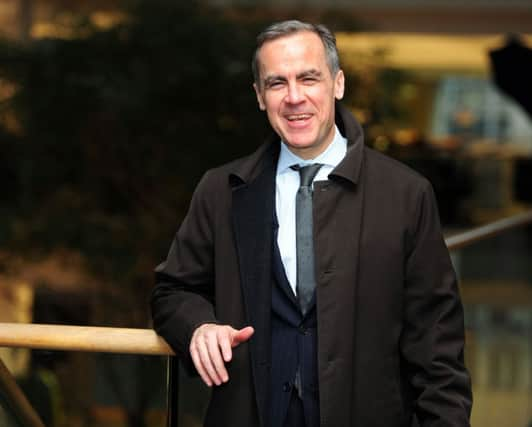Leaders: complex recovery | NATO on Russia


The Bank of England governor knows this to his cost, having initially flagged up a fall in employment to 7 per cent as the point at which the recovery might necessitate a rise in interest rates. But unemployment has not turned out to be the bellwether of a healthy economy that he anticipated, leading to a somewhat embarrassing change of plan.
So perhaps we should be careful about reading too much into the fact that inflation fell to a four-year low of 1.7 per cent last month. We have seen too many false summits in recent years.
Advertisement
Hide AdAdvertisement
Hide AdNevertheless, when viewed alongside average wage rises it is easy to see the practical effect these falls in inflation could ultimately have on consumer confidence. Private sector wage rises are already estimated at 1.7 per cent, with the public sector catching up, albeit from a lower base.
Economists are therefore anticipating a moment in the not too distant future when wage rises will outstrip the rate of inflation. The power of this moment should not be underestimated. The last time this was the case for any significant period of time was way back in 2008.
It will mean that hard-pressed households may start to win themselves a bit of breathing room. They will start to feel that every pound does not have to be stretched to the limit. They may even start to have a few pounds left in their purses and wallets at the end of the month.
Regardless of what the numbers say, this slump will only be over when the British public feel they have a bit of extra cash to spend.
Nato chief’s blunt remarks may prove unwise
AS RUSSIAN armed forces continue to mass on the border of Ukraine, and nervousness grows in other countries in the region, particularly Moldova, about the possible scale of President Vladimir Putin’s expansionism following the annexation of the Crimea, attention is turning to Nato’s response to the crisis.
Yesterday, Nato secretary-general Anders Fogh Rasmussen gave an indication of the western military alliance’s stance – and it was remarkable for its lack of circumspection.
“All Nato allies can be assured of our determination to provide effective defence,” he said. “We have all plans in place to provide effective defence of our allies.”
Nato was discussing with Kiev how it could enhance its support for Ukraine, which is not a Nato member, he added.
Advertisement
Hide AdAdvertisement
Hide AdMr Rasmussen’s comments threw up a range of questions. Ukraine and Moldova are not members of Nato, but they are in its Partnership For Peace, and it is reasonable to suppose this makes them allies. To what extent is Nato committed to coming to these allies’ aid in the event of their national sovereignty being challenged? Other countries in the region will also feel threatened.
The international community has been vocal in its condemnation of Mr Putin’s strategy in the Crimea, but extreme care has been taken not to commit the West to any action beyond the economic and diplomatic.
There are very good reasons for this. Western intelligence sources admit their insight into Mr Putin’s next moves is much less solid than they would like it to be, so to a large extent the West is flying blind. Faced with a Russian leader who has been uncompromising in his recent actions and indifferent to the views of the international community, there is a very understandable reluctance to grandstand in an attempt to face him down.
The tone of the European response to the Crimean crisis has been markedly less tough than the American reaction. There is a simple reason for that – the US has little to lose from falling out with Moscow, while EU countries bank Russian money (UK), rely on Russian gas exports (Germany), or have lucrative arms deals with the Russian military (France).
Is this why it has fallen to Mr Rasmussen, rather than one of the leaders of the Nato countries, to strike a stern tone about the possibility of Nato action? In one way he is stating the obvious.
But history teaches us that international border disputes, coupled with ethnic tensions, are a combustible combination.
One country commits itself to protecting its ethnic kin in a neighbouring country. The rulers of that neighbouring country commit themselves to protecting its borders. One side waits for the other to blink first. This can be how wars start. It is questionable whether Mr Rasmussen’s remarks, which could be seen as upping the ante, were wise.